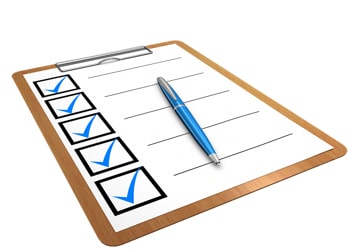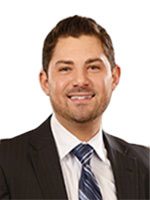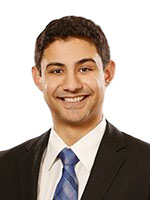Personal Injury Claims ProcessLas Vegas, Nevada
A guide to personal injury claim process in Las Vegas or Nevada

Many clients who came to our office asked us, "What is the personal injury claim process? What should I expect?"
To help them understand the process, we compiled a list of steps the personal injury claim takes. In addition, we included the list of documents the client must bring to the law office for filing an accident liability claim in Las Vegas or another Nevada city and the rules to re-open an old personal injury claim.
But first, what is a personal injury?
Examples of personal injury accidents
Personal injuries can stem from various types of accidents. Yet, they share a commonality: an individual suffered harm because of the negligence of another party or, in certain instances, multiple parties.
Some common types include:
- Motor vehicle accidents (truck, car, motorcycle, or pedestrian accidents;)
- Slips and falls;
- Workplace accidents (construction site accidents);
- Medical malpractice accidents (surgical errors, birth injuries);
- Product liability (defective consumer products);
- Premises liability (dog bites, swimming pool accidents);
- Nursing home abuse or neglect.
Seek medical help first
First and foremost, after an accident, seek medical help. If you feel pain, we recommend checking with a medical professional as soon as possible if everything is OK.
In many cases, the victim feels the result of their injury (e.g., back pain, head pain, minor ankle fracture, etc.) after returning to their regular daily activities. Some of our strongest cases started that way.
1. When do you need an attorney?
If you suffered severe injuries after the accident, required hospitalization, lost the ability to work, or will need long-term treatment in the future, you must hire a personal injury attorney. Read our article "How to Choose a Personal Injury Attorney."
The attorney will protect your interests and fight for a full and fair settlement after the accident. The attorney can also arrange for the doctors to provide medical treatment on a medical lien, meaning the doctor's visits are paid for when the case settles. It also means no expensive co-pays, deductibles, or other out-of-pocket expenses.
2. What documents do you need to file a liability claim?
For motor vehicle accidents, at a minimum, you need to have adverse driver insurance or the police slip to file a claim with the at-fault party insurance company. It's not urgent, but there will be a delay if we don't have that info.
For any other types of accidents (e.g., slip and fall, elevator accidents, nightclub bouncer accidents ), bring photos of your injuries, the date of your emergency room visit, the hospital's address, the names of the doctors who examined you, and eyewitnesses' information.
3. Demand stage
After you finish your medical treatment, the personal injury attorney compiles a list of expenses you inquire about after the accident. It includes all your past and current medical bills, and in some cases, future medical bills, lost wages, property damages, pain and suffering. This compiled list is often called a demand letter. The law office sends the demand letter to the insurance company that represents the plaintiff.
4. Negotiation stage
Then, the negotiation process begins. In most cases, the insurance company's first offer to compensate the victim for the accident is too low to accept; the second or third settlement offer is much better. Many personal injury liability claims attorneys settle out of court. However, this is not always the case. If the parties involved do not agree on a settlement amount or if there is a dispute over liability, the case goes to trial. The disagreement over liability often happens when a victim is partially at fault or has a pre-existing medical condition.
5. What if the victim doesn't agree to settle?
Remember, you are in control. You decide whether to accept the settlement or not.
So, if a victim does not want to settle with the insurance company representing the defendant (the at-fault party), several possible scenarios can unfold:
• Negotiations continue: If the victim rejects the insurance company's initial settlement offer, negotiations may continue.
• Trial: Both parties present their arguments and evidence at trial. Then, the judge or jury determines liability and, if applicable, the dollar amount of damages owed to the victim.
• Appeal: If either party is dissatisfied with the outcome of a trial, they may appeal the decision to a higher court.
• Alternative dispute resolution: In some cases, parties may pursue alternative dispute resolution methods such as mediation or arbitration instead of litigation.
6. Signing a release form
Before making any payments, the insurance company usually asks the victim to sign a release form. It means that you are releasing the responsible party (e.g., the at-fault driver and their insurance) from any liability or obligation to pay you in the future for this accident.
7. Re-opening a personal injury claim
Many restrictions apply to re-opening an already closed insurance claim.
You could take back a prior agreement and re-open a case if you signed a release form without an attorney's aid and within 30 days after accepting a settlement. For more information, contact our office and ask to speak with our personal injury attorney.
We can help
Since 2010, we have helped thousands get their full and fair settlement to pay for medical bills and other damages.
If you want to discuss your specific situation, call us at 702-432-1000.
The initial consultation is free.
We take all personal injury accidents on a contingency basis, which means we only get paid if you settle your case or win at trial.
We represent clients in Las Vegas and Nevada.
Last updated on May 9, 2024.

